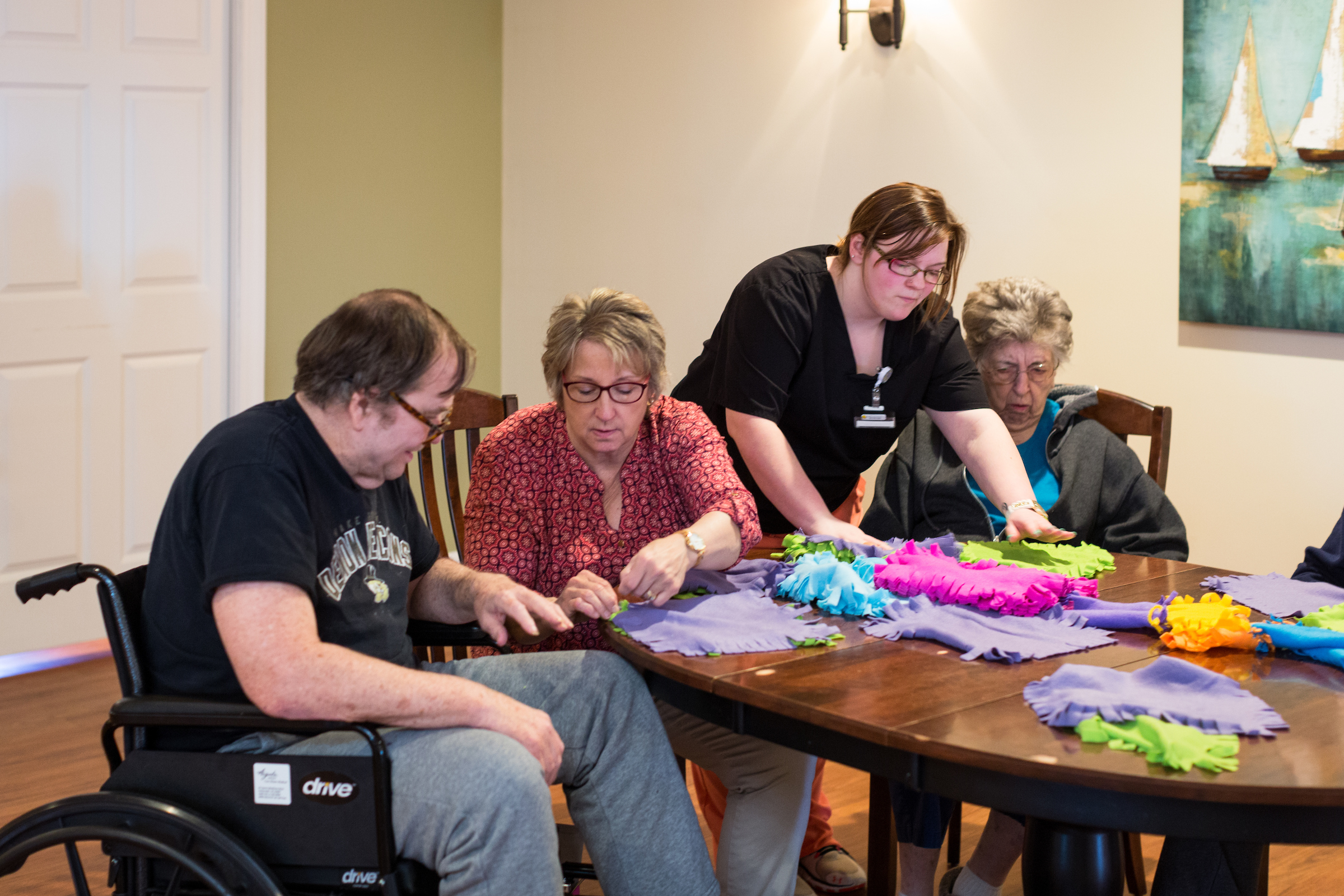Around New Market
If you haven’t visited New Market in the spring before, you’re in luck: it’s shaping up to be a beautiful season! Our porches and walking path here at the Terrace are looking greener and greener, and many of us are enjoying the opportunity to spend a little time outside.
To take advantage of more of the Shenandoah Valley’s best outdoor offerings, we recommend a trip into Shenandoah National Park. The wildflowers there are in bloom, and can be seen along the over 500 miles of trails open for walking or hiking. If you prefer to travel by car, you can also drive along Skyline Drive. This beautiful, scenic route is open 24 hours a day, 7 days a week and is an easy way to take in lots of stunning views.
Animal lovers may also appreciate the opportunity to observe black bears, deer, wild turkeys, and more in the park. On its website, you’ll find tips for seeing wildlife safely and photographing animals from an appropriate distance. The park encourages visitors to share images they’ve captured on social media.
For more about Shenandoah National Park, visit their website through the National Park Service. We hope you get a chance to visit or explore our beautiful region, soon.
Resident Announcement
A very warm welcome to our new residents:
June Mathias, Melba Grove, Evelyn Ott, Larry Johnson, and Bob Whitehurst
You may be gone from my sight,
but you are never gone from my heart.
Jim Jenkins and Carl Lafone
Activity Spotlight: The Old Becomes New Again
Back in April, we gathered our residents for a relaxing and fun sensory activity. Using colorful, bright squares of fleece fabric, our staff helped them create easy knotted blankets. We’ll let our pictures tell most of this story, but notice how the squares are large and soft to the touch. The big pieces make for easier knotting, and eliminate the need for any kind of stitching tools. Our residents enjoyed this simple, yet stimulating activity.
Responding to Dementia: Asking to Go Home
When a memory care resident asks to “go home,” it can be upsetting or frustrating. But, there are a few steps you can take to manage requests like these with kindness and care. Most residents are seeking comfort when they ask to go home, and can be helped by these three approaches:
1. Provide Calm Reassurance: If you can stay calm and collected while you’re addressing your senior, they’ll be more likely to stay calm, too. Try to keep your body landuage and tone of voice relaxed. Often, “I want to go home” is an expression of fear or worry. To ease those feelings, you can give a big hug if your older adult likes hugs, or gently stroke their arm. Stuffed animals, blankets, or therapy dolls may also be good, comforting choices.
2. Don’t Try to Explain or Reason: Though you know that your resident is already in their home, it’s not productive to try and convince them that they are. Trying to reason or appeal to logic with an adult in memory care usually leads to frustration. They may become increasingly distressed and agitated, and are unlikely to accept your explanations. They may start to believe you’re keeping them from doing something they believe is important.
3. Agree, and then Redirect and Distract: The most effective way to manage requests to go home is to agree with them, and then help your resident move on. You can say something like “That’s a good idea,” or “We could go soon.” Phrases like these will help your senior feel heard and not dismissed. Next, gently guide your adult to other sights or activities. For instance, you could respond by saying: “Ok, let’s get your sweater for the ride over.” Then, while you’ll walking, stop for a cup of tea or another activity you pass along the way. You could also use the subject of their home to start a new conversation. Ask them what they like about their home, and then choose a part of their response to focus on. “Oh, you like the potted plants? I saw a beautiful one on this porch, let’s go take a look.”
These strategies take some practice, but are worth learning. If you have questions or would like more guidance for addressing requests to go home, just ask a member of our staff.









